
Robert Dennis Harris CBE is a British novelist and former journalist. Although he began his career in journalism and non-fiction, he is best known for his works of historical fiction. Beginning with the best-seller Fatherland, Harris focused on events surrounding the Second World War, followed by works set in ancient Rome. His most recent works are varied in settings but are mostly set after 1870.
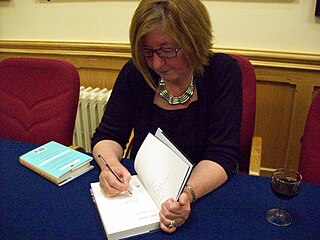
Patricia Mary W. Barker,, Hon FBA is an English writer and novelist. She has won many awards for her fiction, which centres on themes of memory, trauma, survival and recovery. She is known for her Regeneration Trilogy, published in the 1990s, and, more recently, a series of books set during the Trojan War, starting with The Silence of the Girls in 2018.

Robert David Kaplan is an American author. His books are on politics, primarily foreign affairs, and travel. His work over three decades has appeared in The Atlantic, The Washington Post, The New York Times, The New Republic, The National Interest, Foreign Affairs and The Wall Street Journal, among other publications.
Seumas Patrick Charles Milne is a British journalist and political aide. He was appointed as the Labour Party's Executive Director of Strategy and Communications in October 2015 under Labour Party Leader Jeremy Corbyn, initially on leave from The Guardian. In January 2017, he left The Guardian in order to work for the party full-time. He left the role upon Corbyn's departure as leader in April 2020.

Francis Beckett is an English author, journalist, biographer, playwright and contemporary historian. He has written biographies of Aneurin Bevan, Clement Attlee, Harold Macmillan, Gordon Brown and Tony Blair. He has also written on education for the New Statesman, The Guardian and The Independent and has been the editor of Third Age Matters, the national magazine published by the University of the Third Age. Beckett has been described as "an Old Labour romantic" by Guardian associate editor Michael White.

Owen Hatherley is a British writer and journalist based in London who writes primarily on architecture, politics and culture.

West Properties (UK) Ltd is a United Kingdom based property development company. The company focuses on high-end development projects, including Skyline Central, Lumiere, and Vivo in Manchester. Revenue for the 2008 fiscal year fell from £13.9m, down sharply from £26m the previous year.
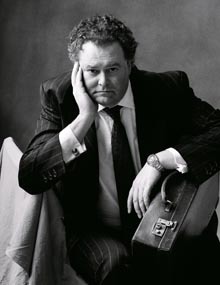
Mark Howard Stephens is an English solicitor specializing in media law, intellectual property rights, freedom of speech and human rights. He is known for representing James Hewitt when allegations of his affair with Diana, Princess of Wales first emerged. In 2010, he represented Julian Assange, the founder of WikiLeaks, defending him against an extradition request to Sweden based on suspicion of numerous sexual offences. He also founded the law firm Howard Kennedy LLP, which has represented several high-profile clients in media and entertainment law cases.
The Palestine Papers is a collection of confidential documents about the Israeli–Palestinian peace process leaked to Al Jazeera, which published them between 23 and 26 January 2011. Nearly 1,700 documents from the office of the main PLO negotiator, Saeb Erekat, and his team have been published, dating from 1999 to 2010.
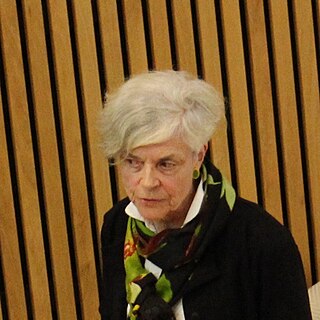
Jean Seaton is Professor of Media History at the University of Westminster and the Official Historian of the BBC. She is the Director of the Orwell Prize and on the editorial board of Political Quarterly. She is the widow of Ben Pimlott, the British historian.
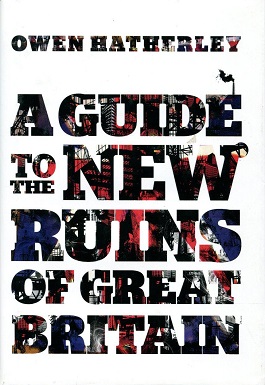
A Guide to the New Ruins of Great Britain is a book by the British writer Owen Hatherley, published by Verso Books in November 2010. The book is a critique of the architecture and urbanism of postmodern Britain, taking the form of a tour of British cities.
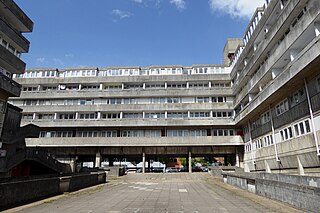
Wyndham Court is a block of social housing in Southampton, England. It was designed by Lyons Israel Ellis for Southampton City Council in 1966, and is located near Southampton Central station and the Mayflower Theatre. Wyndham Court includes 184 flats, three cafes or restaurants and 13 shops, and was completed in 1969.
According to the political theorist Alan Johnson, there has been a revival of serious interest in communism in the 21st century led by Slavoj Žižek and Alain Badiou.

Richard Seymour is a Northern Irish author, commentator and owner of the blog Lenin's Tomb. His books included The Meaning of David Cameron (2010), Unhitched (2013), Against Austerity (2014) and Corbyn: The Strange Rebirth of Radical Politics (2016). Seymour was born in Ballymena, Northern Ireland to a Protestant family, and currently lives in London. A former member of the Socialist Workers Party, he left the organisation in March 2013. He completed his PhD in sociology at the London School of Economics under the supervision of Paul Gilroy. His thesis, dated 2016, was titled Cold War anticommunism and the defence of white supremacy in the southern United States. In the past he has written for publications such as The Guardian and Jacobin.
Laura Oldfield Ford, also known as Laura Grace Ford, is a British artist and author. Her mixed media and multimedia work, encompassing psychogeography, poetry and prose, photography, ballpoint pen, acrylic paint and spray paint, explores political themes and focuses on British urban areas. Her zine Savage Messiah, which centres on London, was published from 2005 to 2009 and collected as a book in 2011.
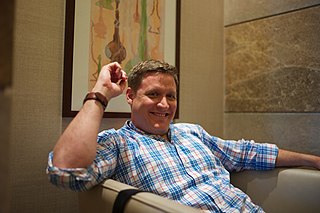
Clayton E. Swisher is an American former journalist and author, who now works as a geopolitical risk analyst. Formerly the Director of Investigative Journalism for the Al Jazeera Media Network in Doha, Qatar, he now heads Swisher Empirical Studies LLC, headquartered in Doha.

You Can't Say That is a 2011 political memoir by British politician Ken Livingstone, who served as Mayor of London (2000–8), leader of the Greater London Council (1981–86) and member of the House of Commons for Brent East (1987–2001).
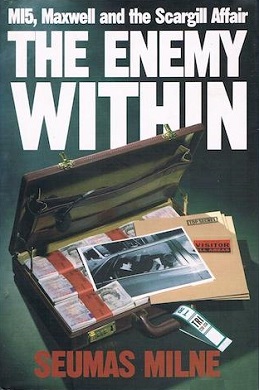
The Enemy Within: The Secret War Against the Miners is a book by British journalist and writer Seumas Milne, first published in 1994. Updated editions were released in 1995, 2004, and 2014.

The House of Government: A Saga of the Russian Revolution is a 2017 study of the history of the Russian Revolution, the formation of the Soviet Union, and its early history from the days of the New Economic Policy into the early days of Stalinist Rule by the Russian-born American historian Yuri Slezkine. The book consists of "three strains": "The first is a family saga involving numerous named and unnamed residents of the House of Government." The second strain is analytical. It looks at the revolution and subsequent Soviet administration through the lens of the millenarian cult and "aims to capture the rise and fall of Bolshevism through a building and its residents, via a study in eschatology – the creation of an apocalyptic cult, its unexpected success, and its equally unexpected failure." "The third strain is literary...Each episode in the Bolshevik Family Saga, and each stage in the history of the Bolshevik prophecy is accompanied by a discussion of the literary works that sought to interpret and mythologize them."
Anti anti-communism is opposition to anti-communism as applied in the Cold War. The term was first coined by Clifford Geertz, an American anthropologist at the Institute for Advanced Study, who defined it as being applied in "the cold war days" by "those who ... regarded the [Red] Menace as the primary fact of contemporary political life" to "[t]hose of us who strenuously opposed [that] obsession, as we saw it ... with the insinuation – wildly incorrect in the vast majority of cases – that, by the law of the double negative, we had some secret affection for the Soviet Union." Stated more simply by Kristen Ghodsee and Scott Sehon, "the anthropologist Clifford Geertz wrote that you could be 'anti anti-communism' without being in favour of communism."















